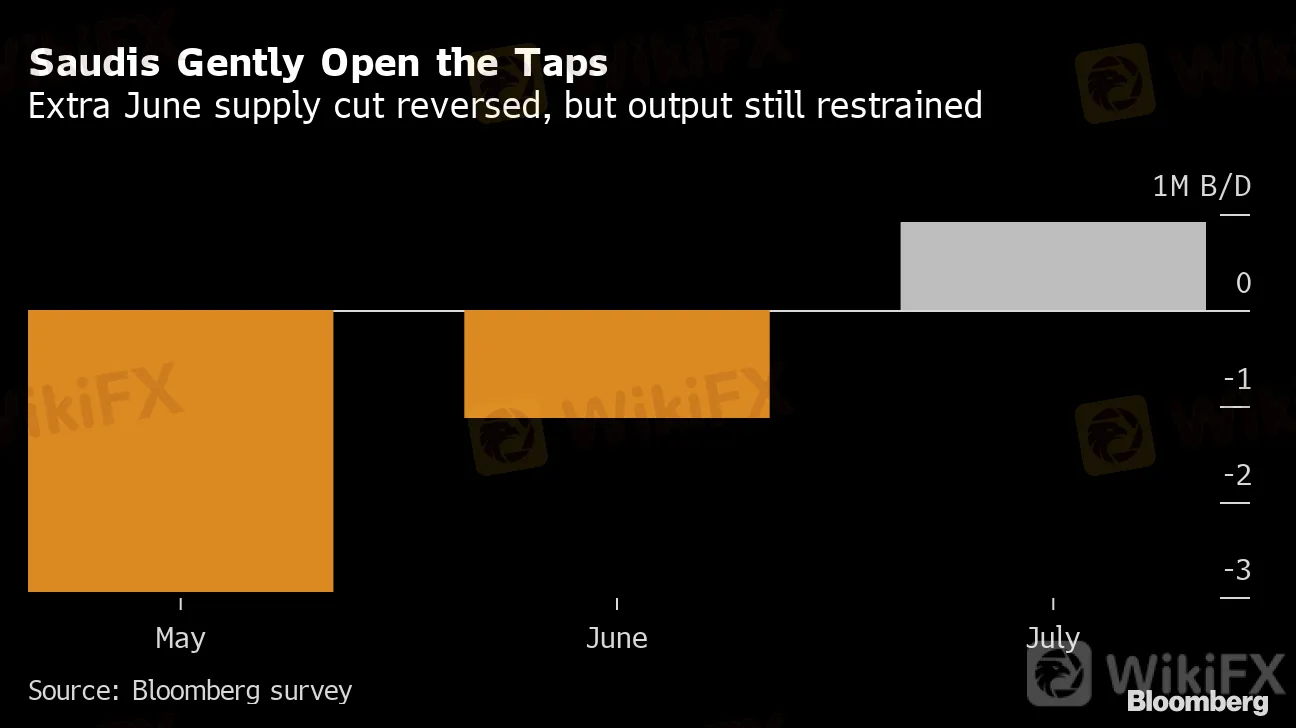OPEC Raised Supply Last Month as Gulf Nations Ended Extra Cuts from freemexy's blog
OPEC Raised Supply Last Month as Gulf Nations Ended Extra Cuts
OPECs
crude production rose last month as Persian Gulf members phased out
extra supply cutbacks, but the cartel largely persevered with its
strategy to revive the global oil industry.To get more news about WikiFX, you can visit wikifx news official website.
Saudi Arabia, the United Arab Emirates and Kuwait restored the
additional output taken offline in June, when they had amplified efforts
to disperse an oil glut left behind during the coronavirus crisis.
The Organization of Petroleum Exporting Countries increased output by
900,000 barrels a day to 23.43 million a day, according to a Bloomberg
survey. Its based on information from officials, ship-tracking data and
estimates from consultants including Rystad Energy AS, Petro-Logistics
SA, Rapidan Energy Group and JBC Energy GmbH.

OPEC and its partners are continuing to restrain output in accordance
with their pact to limit production to tackle the steepest collapse in
demand ever seen. Their labor has helped almost triple crude prices from
the two-decade low in late April, lifting Brent futures in London to
about $43 a barrel.
As oil consumption recovers with the restart
of economic activity worldwide, the coalition of producers is poised to
open the taps even further this month. The group will return 1.3 million
to 1.5 million barrels a day to the market this month, according to
Saudi Arabia.
Still, there are concerns as many countries struggle
to contain the epidemic and some are being forced to reinstate lockdown
measures.
Saudi Arabia, OPEC‘s biggest producer and de facto
leader, is moving with caution. While it boosted output by 920,000
barrels a day last month, the average remained below the limit it’s
allowed to pump under the agreement, at 8.45 million a day.
Iraq and
Nigeria made no progress in implementing their promised supply
cutbacks, let alone the additional curbs they had pledged in
compensation for earlier non-compliance.
Russia, the biggest
non-OPEC member in the OPEC+ alliance, also increased production in
July, according to preliminary data from the Energy Ministry.

The Wall